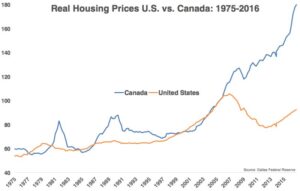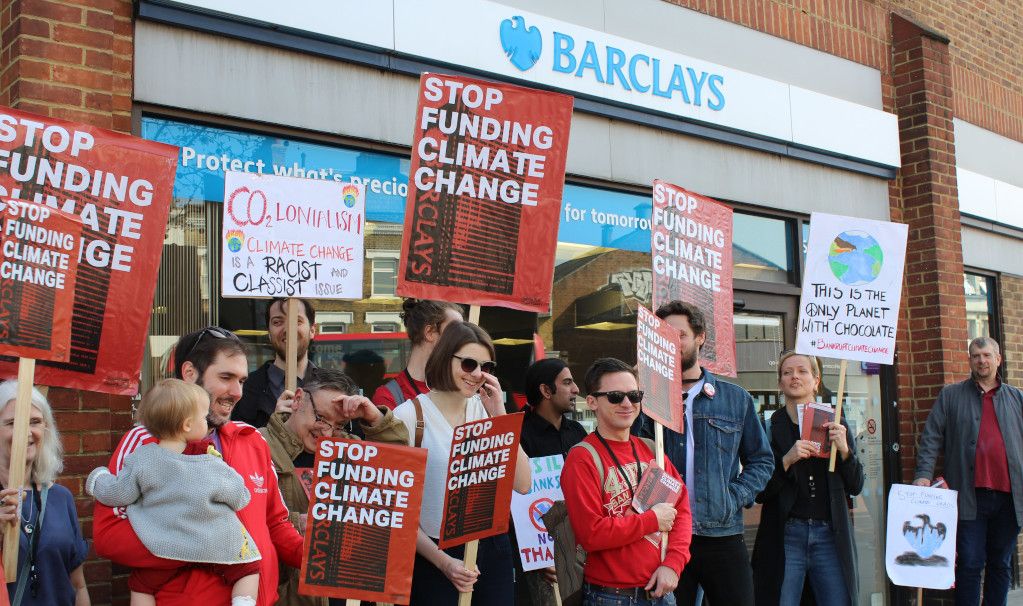Housing, whether renting or buying, in Vancouver and Toronto, is among the most expensive in the world. Having an affordable roof over their heads remains a pipedream for many of the nearly 10 million people that call these two regions home. The high cost of housing is fuelled by a worldwide bubble of speculative money seeking quick profits out of people’s homes.
The 2008 financial crash in the US, driven by the subprime mortgage lending, is still fresh in the minds of people. There are growing warnings that something similar is brewing in Canada. While the Vancouver and Toronto regions are the worst for unaffordable housing, Canadian Mortgage and Housing Corporation CMHC) has issued warnings about several other major cities in Canada, including Saskatoon, Victoria and Hamilton. Overall, over half of all Canadians live in cities where the housing markets are “problematic.”
Moody’s Investors Service has downgraded the country’s six big banks, pointing a worrying finger at the current level of consumer debt and housing prices. Shares of TD Bank, Bank of Montreal, Scotiabank, CIBC, National Bank and Royal Bank have all fallen in the wake of the downgrade. This, along with the increase in the Bank of Canada’s interest rate, may increase the cost of mortgages. Home Capital, one of Canada’s largest non-banking mortgage providers, is in serious trouble. It has lost almost $1.9 billion in high-interest deposits since the end of March 2017, forcing it to secure a costly $2 billion loan from a pension fund. Both the International Monetary Fund and Organization for Economic Cooperation and Development have recently issued warnings about Canada’s over-priced housing. All these point to serious worries about Canada’s housing market. There are good reasons to fear that the bubble will burst.
If property prices drop, some hoping to buy a house may welcome lower prices. However, the cascading impacts of a burst bubble would mean many people would be unable to buy a house, due to unemployment, or short-time working. In addition, rules on mortgages would probably be restrictive, although this would be much like closing the stable door after the horse has left. The impacts could also spread to increased demand for rentals as homeowners are forced to give up their mortgages and turn to renting.
After years of stagnate wages and rising costs for everything from housing to education, many Canadians are deep in debt, with very little money saved. The family debt to income ratio in 1993 was 90%. In 2017, it had soared to over 174%, one of the highest in the world. A recent Ipsos survey found that over 50% of Canadians are living within $200 of not being able to pay their bills or debt obligations. Even a small increase in borrowing costs would hit many households hard.
Years of job losses in manufacturing and recent low prices for raw materials, mean that the Canadian economy relies on the housing bubble. Stats Canada reported that in 2016 two-thirds of all of Canada’s GDP is based on housing spending and residential investment.
A sharp fall in house prices would have a devastating impact on the Canadian economy. Many mortgage holders are using rising house values to finance expenditure – this would end. If people can’t make payments, due to a drop in their income, the banks could take back their property and would then sell the properties at a loss, potentially flooding the market. A drop in house prices could leave many people with property that is worth less than the debt on it.
Everywhere unemployment would soar. There is a long chain of people who depend on the housing industry for work. Real estate agents, lawyers, construction workers, security guards and more would have their jobs at risk. The crisis could spread much further. Consumer spending would drop, hitting restaurants, cafes, clothing stores and more. Governments at all levels rely on income from the property boom, so a bursting bubble would hit government spending and services.
In addition to the direct impact of job losses and decreased spending, in a time of recession, even people who keep their jobs are likely to decrease their spending as they are fearful of the future.
In a sharp drop, insurance companies that cover mortgages could potentially go under following the massive pressure of covering their clients in the case of bad loans. In such depressing times, the already dangerously high level of homelessness could sky rocket.
The answer to this problem may not be simple, but it needs to be worked out. The foreign buyers’ tax introduced in BC and now mirrored in Ontario offered only temporary respite. After a short-term drop in house sales and high-end prices, sales and prices have recently increased in Vancouver. The benchmark residential price in Greater Vancouver has reached a new high. The tax was always more about political appearance than sound policy. The current driver of soaring house prices is the trillions of dollars pumped into the banks after 2008. This money is not being invested in production, it is sloshing around the globe seeking quick profits and much of it is going into property speculation. A large part of the speculative bubble in Vancouver and Toronto is driven by wealthy Canadians.
We need a major program to build homes for all. This needs to tackle the full spectrum of the housing crisis and housing needs. Canada has soaring homelessness, poor people are being driven from their homes and communities by gentrification, renters increasingly cannot make the rent and those who want to buy a home find it impossible.
The root of all of this is that housing is treated as a commodity to be bought, sold and rented for profit. A home is a human right. It is imperative that a program is introduced that focuses on building social and affordable housing – anything less is inhumane.



